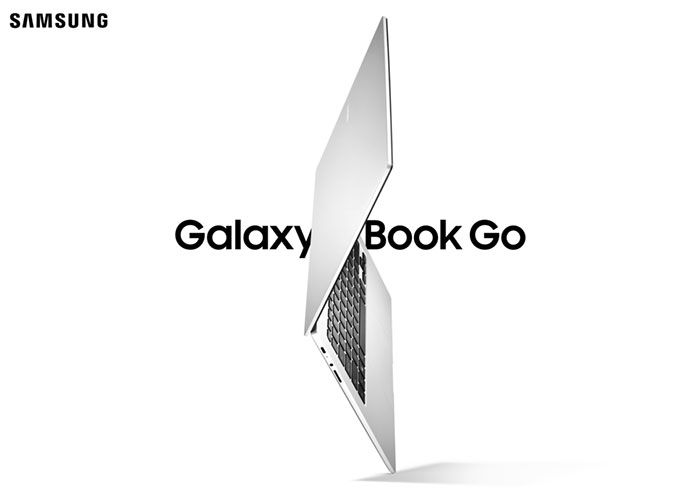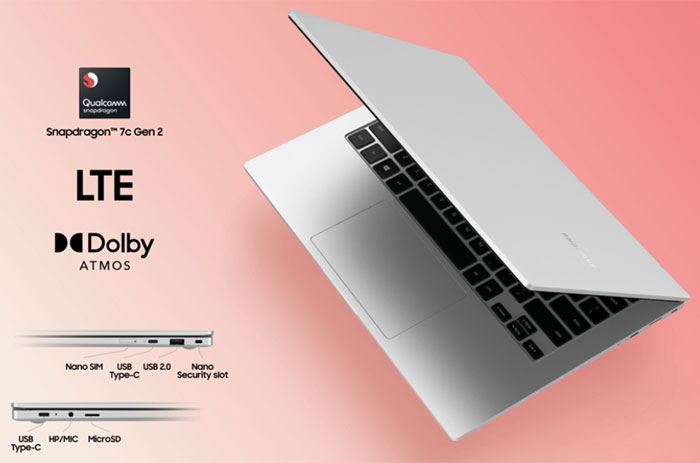Last week we saw Qualcomm launch its latest Snapdragon 7c Gen 2 which it designed targeting affordable laptops. Today Samsung has announced the Galaxy Book Go, built upon this platform. But that isn't all, Samsung has built a stablemate called the Galaxy Book Go 5G, which is powered by the Qualcomm Snapdragon 8cx Gen 2 5G.

These new portables from Samsung are pitched as affordable solutions, with the Snapdragon 7c Gen 2 version priced from US$349. Despite the bargain pricing, the laptops might fill a gap in your portable computing needs; especially with their thin and light nature, long-lasting battery, and cellular LTE and 5G connection possibilities.
At the time of writing Samsung is only sharing the spec list for the cheaper Galaxy Book Go which comes with the Snapdragon 7c Gen 2, 4/8GB of LPDDR4X RAM (not upgradable), and 64/128GB of eUFS storage. I'd expect the Go 5G to be similar in size (323.9 x 224.8 x 14.9mm), weight (1.38kg), and also be built around a 14-inch FHD screen, but it could have better RAM/storage and screen options. I'd expect the Galaxy Book Go 5G to cost quite a bit more than its little brother too, as the SD7c Gen 2 base model is Wi-Fi only, and will cost extra for the 4G/LTE version.

As well as being eminently portable, and offering great battery life, Samsung has designed the Galaxy Book Go models for toughness, with the 5G model having passed Mil-STD-810G tests. Samsung makes a song and dance about these Windows laptops playing smoothly with the Galaxy smartphone and smart device ecosystem, if that is something you will find attractive.

Samsung is making the Galaxy Book Go with Snapdragon 7c Gen 2 available later this month, depending on your location. It costs from US$349. The Galaxy Book Go 5G will be available "later this year".













